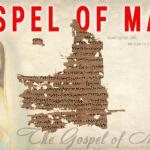I was very happy to receive a message from the pastor of my church, Rev. Mark Pittman (of Crooked Creek Baptist Church), in response to reading my book The Burial of Jesus: What Does History Have to Do With Faith?, published by Patheos Press (in ebook format, second edition). Here’s what he said:
James, just finished a cover-to-cover-one- sitting-binge-reading of your The Burial of Jesus. I appreciated the early NT101 chapters as you lay the groundwork for your later conclusions. Really helpful in getting me in tune with your discussion. I have had no issues with seeing Scripture as being written with spiritual or theological intent. Have never been quite able to figure out what to do with the resurrection of Jesus. The bodily resurrection as described just didn’t fit with my view of faith and scripture as a whole. Think I had the pieces, but you put it together for me so well. Most helpful was in the reminder that the gospels each contain hints that this was an event confusing and uncertain even for the earliest believers. Matthew’s words at Jesus’ final appearance, “but some doubted” are very significant. Thanks again. Just picked up your work on One God. Probably not a binge read.
Having what one wrote not merely be found worth reading, but worth binge reading, is a particular honor. When it is the pastor of one’s church who says something like this, it is all the more meaningful and encouraging. As a result of what he wrote, my wife decided to reread the book – and ended up binge-reading it as well, although not all in one sitting. Since the book is very much about matters related to Easter, I am glad Pastor Mark gave me permission to share his recommendation of the book when he did!
Also on the topic of how historical study of Jesus relates to faith is a recent post by Jonathan Bernier, which starts out focused on ancient Israel, but ends as follows:
Now, some students suggested that Jesus’ life and ministry and salvific significance were such that there was some sort of rupture in the historical continuum. From a historical perspective, I would fully grant that Jesus represents one of those creative personalities who periodically emerges to address the urgent needs of their times; the emergence of such creative personalities might indeed be taken as signs of divine grace operating in history. And indeed, the needs of Jesus’ time were urgent. The Jewish revolt was still a few decades away, but the Land was already suffering from many of the conditions that led to that event, most notably I would argue the economic depredations suffered by the local population under Roman rule. Jewish society in the Land was breaking down under these depredations, as lifeways were disturbed by predatory foreign rule. Leaders emerged, promising deliverance from these conditions. The real question for me as a historian is why from this particular situation this one particular leader, Jesus of Nazareth, began a movement that eventually took over the world. Theologically, one might articulate this in terms of God’s gracious solution to the problem of human evil, but I would argue that historically this question can only be answered by the fullest understanding of the problems to which Jesus was responding and the conditions under which he operated, and that moreover the theological account would only be deepened by fully developing the historical.
Of related interest: LiveScience had a piece about Pontius Pilate. And Jim Spinti blogged about ancient authors, writing: “Not all cultures think about history the same way. In the ancient world it is difficult to find anyone who could legitimately be identified as a historian or journalist. Their cognitive environment had no need of such professions.” He also quoted John Walton in another post, “We cannot read the Hebrew Bible as it it were journalistic or academic history such as might be written today. Such reading would compromise the intentions, presuppositions, values, and poetics of the literature and its authors. When we critique the literature, we should critique it in terms of its own guiding criteria rather than expecting it to reflect our own and dismissing it when it does not.”














